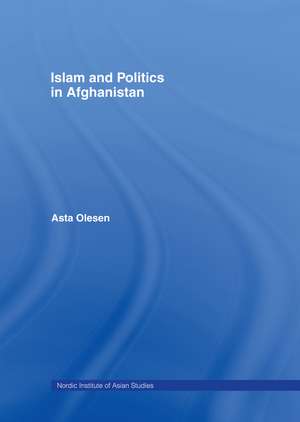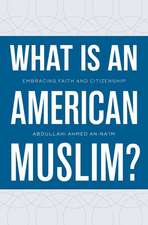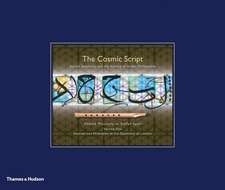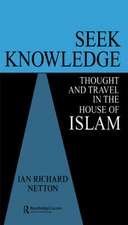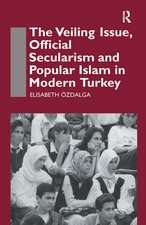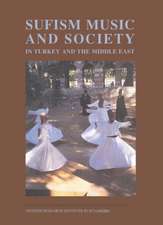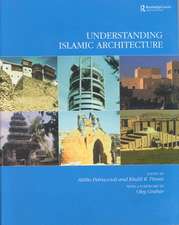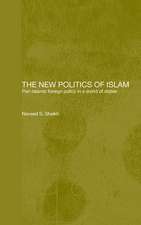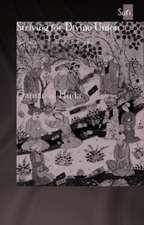Islam and Politics in Afghanistan
Autor Asta Olesenen Limba Engleză Hardback – 13 apr 1995
Preț: 828.46 lei
Preț vechi: 1145.50 lei
-28% Nou
Puncte Express: 1243
Preț estimativ în valută:
158.53€ • 169.52$ • 132.18£
158.53€ • 169.52$ • 132.18£
Carte tipărită la comandă
Livrare economică 17 aprilie-01 mai
Preluare comenzi: 021 569.72.76
Specificații
ISBN-13: 9780700702992
ISBN-10: 0700702997
Pagini: 368
Dimensiuni: 178 x 254 x 29 mm
Greutate: 0.93 kg
Ediția:1
Editura: Taylor & Francis
Colecția Routledge
Locul publicării:Oxford, United Kingdom
ISBN-10: 0700702997
Pagini: 368
Dimensiuni: 178 x 254 x 29 mm
Greutate: 0.93 kg
Ediția:1
Editura: Taylor & Francis
Colecția Routledge
Locul publicării:Oxford, United Kingdom
Cuprins
Preface; Transcriptions from Arabic Script; Islam - Ideology and Politics; Afghanistan Towards the End of the Nineteenth Century ; From Tribal State to Absolute Monarchy (1880-1901); Pan-Islamism and Anti-Colonialism (1901-1919); A New Ideological Paradigm: The Reform Policy of King Amanullah (1919-29); Re-Establishment of the Social Order and Its Transformation (1930-1950s); The Struggle for Political Reform (1950s-1970s); The Development of the Islamic Movement from the 1960s; The PDP A and Islam; Ideological Class Struggle and the Aesthetics of Reception; Conclusion
Descriere
The years 1978 and 1979 were dramatic throughout south and western Asia. In Iran, the Pahlavi dynasty was toppled by an Islamic revolution. In Pakistan, Zulfigar Ali Bhutto was hanged by the military regime that toppled him and which then proceeded to implement an Islamization programme. Between the two lay Afghanistan whose "Saur Revolution" of April 1978 soon developed into a full scale civil war and Soviet intervention. The military struggle that followed was largely influenced by Soviet-US rivalry but the ideological struggle followed a dynamic of its own. Drawing on a wide range of sources, including such previously unused archival material as British Intelligence reports, this is a detailed study of the Afghan debate on the role of Islam in politics from the formation of the modern Afghan state around 1800 to the present day.
